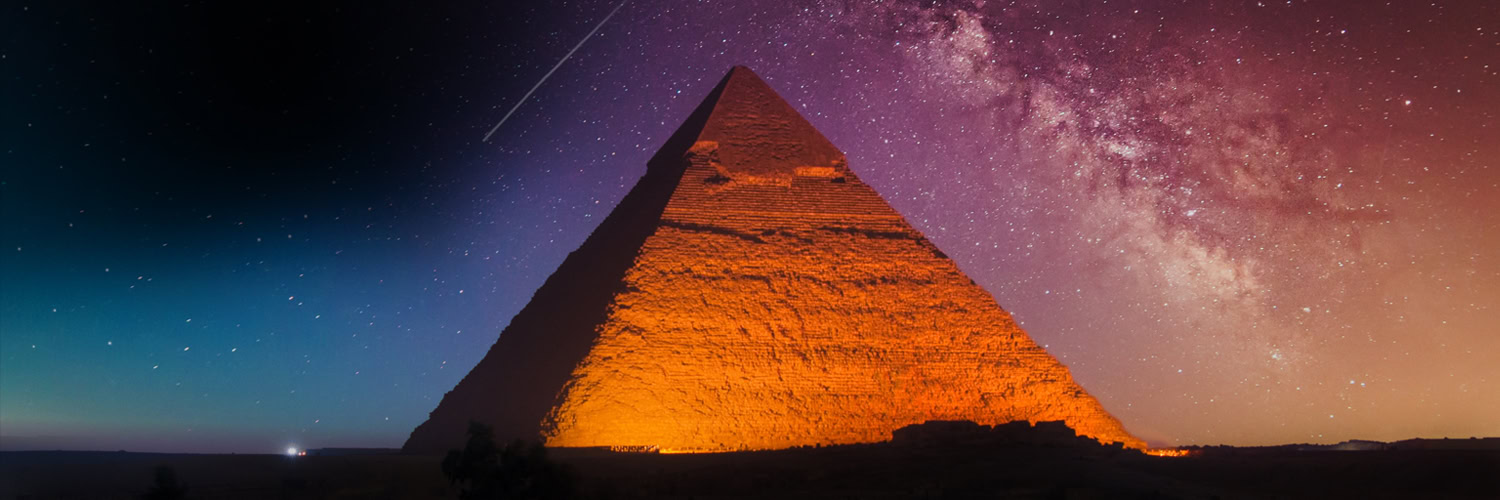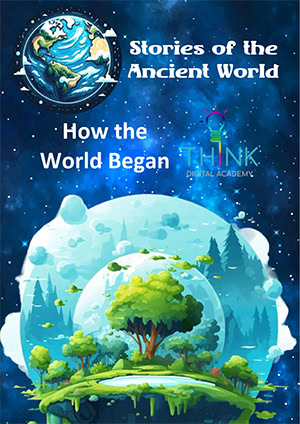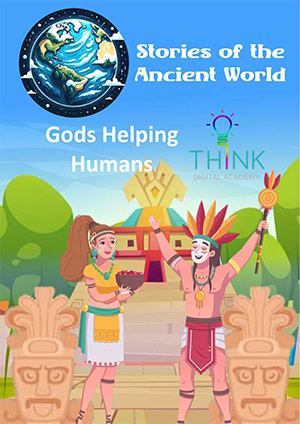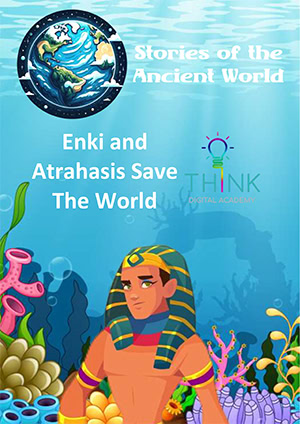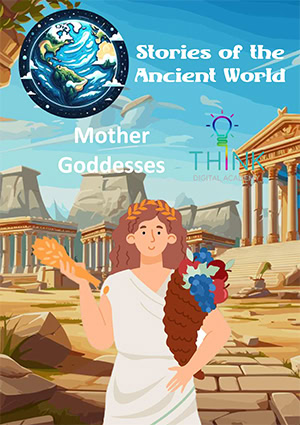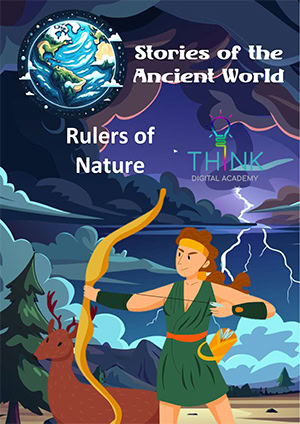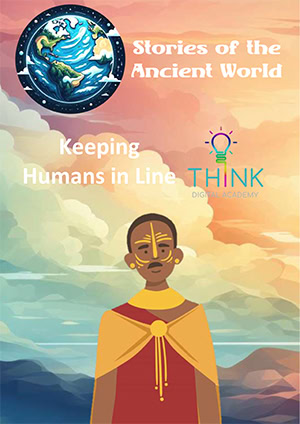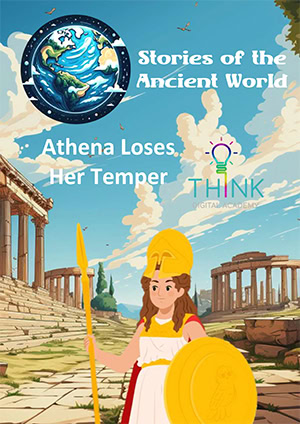In this series, you’ll read about the myths, folktales and legends that are part of how ancient people made sense of the world.
For as long as there have been humans, we have tried to understand the world around us. Myths, folktales and legends are part of how we make sense of the world. Gods and goddesses, humans and animals, monsters and demons were more than just characters in these stories. They were how ancient people answered some of life’s biggest questions, many of which are still mysterious to us today. How exactly did the world come to be? Can good overcome evil? Why are some people luckier than others?
Stories turn up in interesting places. We find them in the voices of storytellers, crumpled between the pages of library books, boxed up in dark basement archives, scratched underneath the objects in museums and half-remembered by our grandparents and great-grandparents. They come to us when we are looking for them, as well as when we aren’t. The stories in this book come from all across the ancient world, including cultures that many people don’t get taught about at school. Some of the stories are told today, by people who are descended from those ancient people who told them for the first time thousands of years ago. Some have changed so much that the ancient people who first told them would no longer recognise them.
Like the ancient artefacts in this series, these tales have moved around the world. The story of how they moved is also a story of migration, colonisation, war, trade and friendship. Unfortunately, it has been the case for far too long that certain ancient people were considered more important than others (usually those who lived in what is now called Europe). As a result of this, some stories are better known than others. We hope that in this series, you will meet gods and goddesses that you haven’t met before and become inspired by them to learn more about the whole of the ancient world.
Each of the gods and goddesses in these books is proof of ancient humans trying to make sense of stars, or storms, or hunger, or grief, or love. Hidden in the courage of heroes or the cleverness of princesses, knotted through mysterious spells and cunning tricks is the proof that humans have always needed to rely on each other as much as they have ever needed to rely on gods. Myths show us how much we need each other. They need to be told in order to stay alive. And it is up to all of us to tell them.
Was there a time before the world began? For the people who have lived in Australia since ancient times, the era before time began was called ‘Everywhen’, while the ancient Greeks called it ‘Chaos’.
Humans have always needed help to survive in the world. In the ancient world, it was the gods and goddesses that humans looked for to help, but it often came at a price.
The humans were being far too loud and Enlil, the king of the gods, was annoyed. At night, he struggled to sleep and during the day, he had a headache that felt like bolts of lightning hitting the inside of his skull.
Ancient cultures venerated mother goddesses for their roles in fertility, protection, and survival. From the Greek Kybele to the Phoenician Tanit, these figures were central to religious practices.
Rain, wind, the tides and the rising and setting of the Sun were all confusing to ancient people. In order to explain how these things, many people told stories about gods and goddesses who controlled the natural world.
In ancient tales, gods and goddesses often punished humans for their disobedience, establishing strict rules and limits. One such story involves Anansi the spider, tasked by the sky god Nyame to collect all the world’s wisdom in exchange for a glittering crown.
Athena, the goddess renowned for her weaving, was infuriated upon hearing that a mortal girl named Arachne claimed superior skills. Athena advised Arachne to humble herself, but Arachne defiantly challenged the goddess to a weaving competition.
Subscribe to our mailing list to ensure you don’t miss out on any of our upcoming books and stories.


